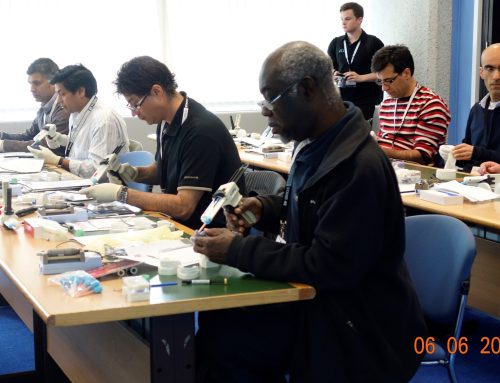In the complex world of leadership and management, there’s an age-old debate that seems to resurface time and again: What’s more crucial for long-term success, KPIs or people? Strategy or culture?
From my experience, drawing a line in the sand between these elements and adopting an either/or stance is a surefire way to stifle both progress and morale. The truth is, achieving both outstanding results and fostering deep, meaningful relationships within your team is not only possible but essential for sustained success. This delicate balance hinges on a leadership approach grounded in empathy and a keen understanding of the human element in workplace dynamics.
The Surprising Insight from Social Media

A survey I conducted on social media sought to shed light on what people value more when striving for success: strategy or culture. The findings were enlightening, to say the least. An overwhelming 85% of respondents leaned towards strategy as the key ingredient for success, overshadowing culture significantly. This preference for strategy highlights a common trend in leadership and management circles: a pronounced focus on vision, direction, and targets. Leaders often prioritize the logical, rational pathways to success, meticulously plotting strategies to reach organizational goals.
The Underestimated Power of Team Culture
However, this focus on strategy often comes at the expense of nurturing team culture—a critical, albeit less tangible, component of organizational success. Team culture is the mosaic of beliefs, values, attitudes, and behaviors that define the collective personality of a team. It influences everything from decision-making processes to everyday interactions and communication habits. Because culture is subjective, intangible, and often deemed irrational, it’s frequently neglected or undervalued in the grand scheme of corporate objectives.
Yet, the importance of a strong, positive team culture cannot be overstated. It’s the bedrock upon which successful strategies are built and executed. A vibrant culture fosters a sense of belonging, boosts morale, and can significantly enhance productivity and creativity. It’s a critical determinant of proactive growth and overall success, shaping how strategies are implemented and how effectively teams work together towards common goals.
The Symbiosis Between Strategy and Culture
The relationship between strategy and culture is symbiotic. Strategy provides the roadmap for where an organization wants to go, while culture imbues the journey with meaning and cohesion. Ignoring culture in the pursuit of strategic goals is akin to sailing a ship without acknowledging the wind and currents. To truly harness the power of your team and steer your organization towards long-term success, both elements must be given equal weight and attention.
Leaders must work diligently to cultivate a team culture that aligns with their strategic vision. This involves not only articulating clear, achievable goals but also building an environment where team members feel valued, understood, and connected to the larger mission. Empathy plays a crucial role in this process. By demonstrating genuine care and interest in the well-being and development of their team, leaders can earn trust and loyalty, which are indispensable when navigating the challenges of achieving ambitious goals.
Cultivating a Winning Culture

So, how can leaders work on fostering a positive team culture?
The answer lies in intentional actions and practices that recognize and celebrate the human aspects of work. Regular team-building activities, open lines of communication, recognition of individual and team achievements, and opportunities for professional growth all contribute to a strong, cohesive culture.
Moreover, leaders must be willing to listen, learn, and adapt, acknowledging that a thriving culture is a constantly evolving entity shaped by the people who are part of it.
In conclusion, while the allure of strategic victories and hitting KPIs is undeniable, it’s the strength of the relationships and the richness of the culture within your team that truly determine the longevity and depth of your success. By embracing the complexity and interdependence of strategy and culture, leaders can unlock the full potential of their organizations, achieving not just great results but also building a legacy of leadership that resonates on a profoundly human level.
Get in touch with us to cultivate and enhance your dental team.




